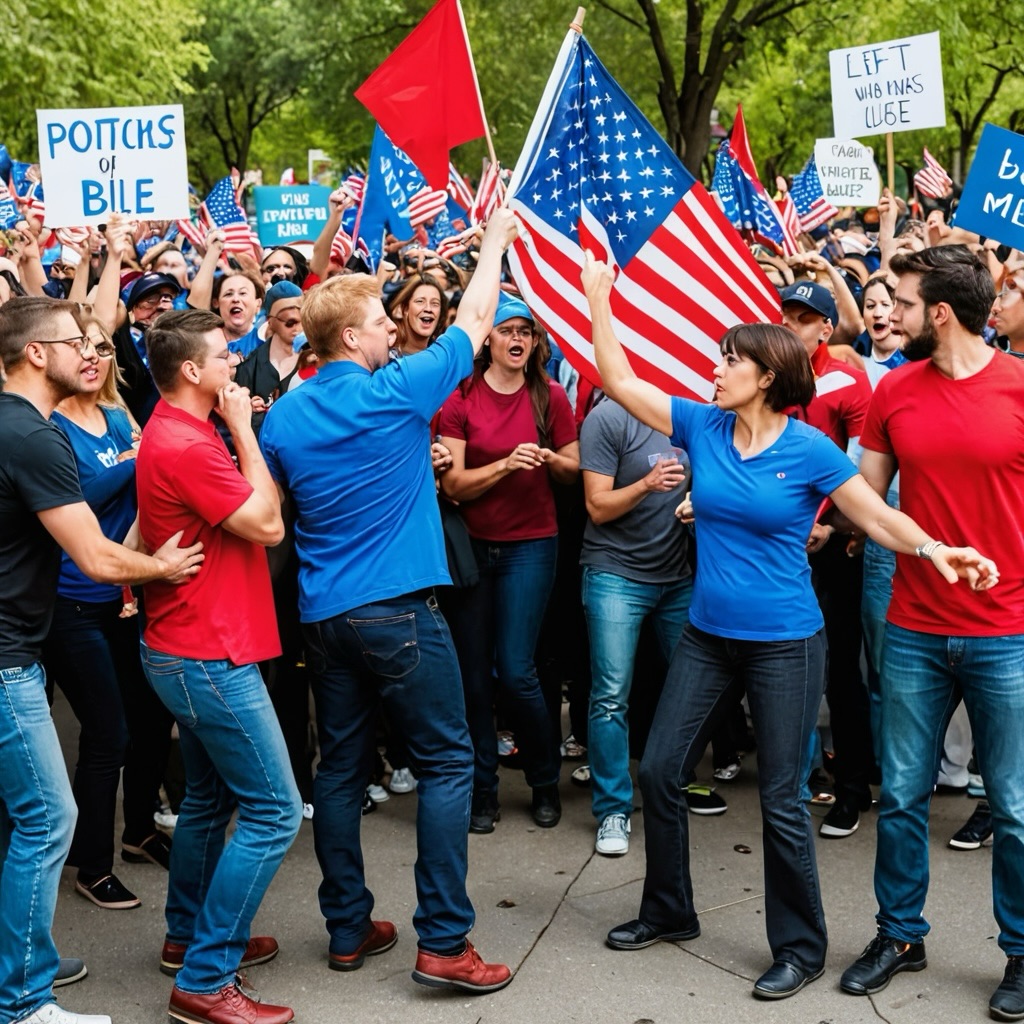In recent years, the political landscape in the United States has become increasingly polarized, with extreme groups like ANTIFA on the left and the Proud Boys on the right grabbing headlines and shaping public discourse. At first glance, these two factions appear to be on opposite ends of the ideological spectrum, each advocating for radically different visions of society. However, a closer examination reveals that they may not be so different after all. Both groups are driven by a desire for significant societal change, albeit through vastly different means. But what if I told you that their seemingly opposing agendas are being manipulated by a common force—a political puppeteer pulling the strings from behind the scenes?
A Shared Desire for Change
ANTIFA and the Proud Boys both emerged from a profound sense of dissatisfaction with the status quo. ANTIFA, often characterized by its anti-fascist stance, aims to combat perceived threats of authoritarianism and far-right extremism. On the other hand, the Proud Boys, a far-right group with a nationalist agenda, positions itself as a bulwark against what they see as leftist encroachment and societal decay.
Despite their opposing ideologies, both groups share a core desire for radical change. ANTIFA seeks to dismantle systems they believe perpetuate inequality and fascism, while the Proud Boys yearn to preserve what they see as traditional values and national identity. This common thread of seeking change, albeit from different perspectives, suggests that both sides are driven by a reaction to perceived injustices and threats.
The Political Puppeteer’s Game
The real intrigue lies in how these two groups are manipulated by political elites. Politicians and media outlets often amplify the rhetoric of both ANTIFA and the Proud Boys, using their extreme positions to drive wedges between ordinary citizens and distract from more substantive issues. This amplification is not merely about covering sensational news; it’s about creating a narrative that serves the interests of those in power.
The strategy is deceptively simple: By fostering and magnifying divisions between these extreme groups, politicians can rally their base, consolidate power, and justify increasingly authoritarian measures. The spectacle of conflict between ANTIFA and the Proud Boys serves as a distraction from the deeper, structural issues that underpin societal dissatisfaction. The more polarized and divided the public becomes, the easier it is for political elites to maintain control and deflect criticism.
Recognizing the Psy-Op
Understanding this manipulation requires acknowledging that both ANTIFA and the Proud Boys are not merely opposing forces but pawns in a larger game. The tactics used to control public perception involve fostering outrage, fear, and division—emotions that cloud judgment and prevent meaningful dialogue. The political puppeteer benefits from this chaos by maintaining the status quo and avoiding real reform.
To break free from this psy-op, it’s essential for individuals on both sides to recognize the commonalities in their frustrations and aspirations. Rather than falling into the trap of vilifying one another, there needs to be a concerted effort to identify shared grievances and work towards common goals. By shifting focus from divisive rhetoric to collaborative problem-solving, both groups can undermine the manipulative tactics employed by those in power.
Moving Forward
The first step towards overcoming this manipulation is awareness. Recognizing that ANTIFA and the Proud Boys, despite their apparent differences, are both reacting to systemic issues helps in understanding how they are being used as tools in a larger political strategy. Open dialogue, empathy, and a commitment to addressing fundamental societal problems are crucial in breaking the cycle of division and manipulation.
In the end, the power of unity and collective action far outweighs the illusion of division perpetuated by those who seek to control and divide. By coming together and addressing the root causes of dissatisfaction, we can challenge the puppeteers and work towards a more equitable and just society.
